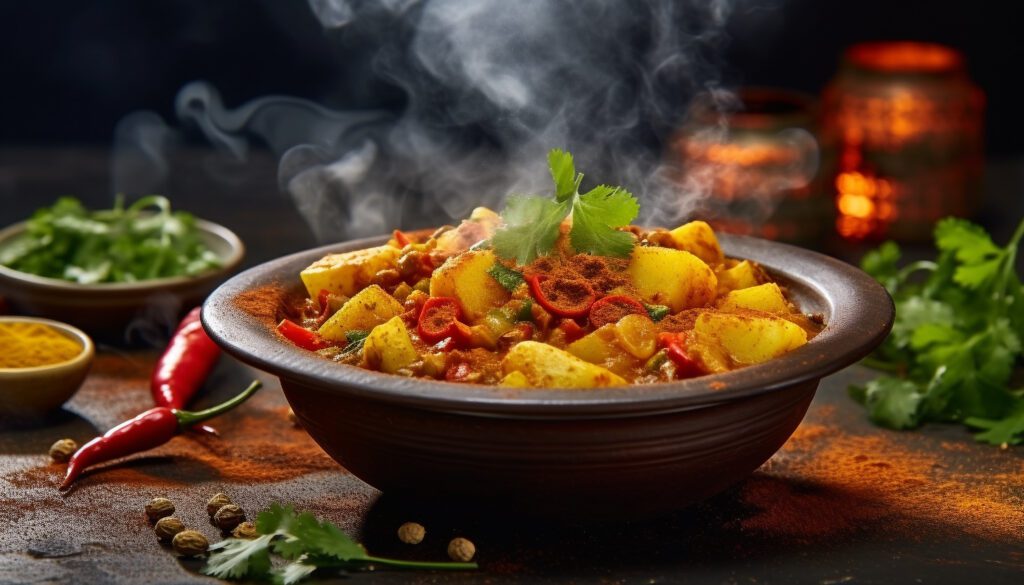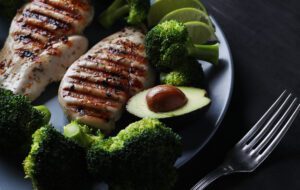Cancer is a disease not just physical, but also affects emotional and mental well-being. Each cancer patient has a unique set of symptoms, but there is one thing everyone shares in common – diet can affect their healing.
Food spice, one of the world’s main food groups, is hysterical as a disease and a health hazard. But for cancer patients: does spicy food cause cancer? Is spicy food a cause of cancer or is it just an illusion? We will discuss this myth in this blog with evidence, case studies, and even nutritional guidance for cancer patients.
Table of Contents
The relationship between cancer and dietary habits
Cancer: A Basic Overview
Cancer is a very complex disorder caused by faulty cell growth. This is a disease that spreads through different organs and tissues, and common symptoms include:
- Extreme Fatigue: In which the patient feels very tired.
- Nausea and Vomiting: These are side effects of chemotherapy or radiation therapy.
- Weight Loss: Sudden and unexplained reduction of body mass.
- Appetite Loss: Not feeling like eating, digestion-related problems.
What effect does diet have on cancer?
Diet can directly impact cancer prevention, symptom management, and treatment effectiveness. Healthy and balanced diet:
- Strengthens the immune system.
- Reduces the side effects of treatment.
- Maintains energy levels.
Diet selection for cancer patients is based on their treatment and symptoms. But, questions often arise about eating spicy food: Is it safe or can it make symptoms worse? Furthermore, does spicy food cause cancer, or is it a myth fueled by misinformation?
Spicy Food And Cancer Symptoms
A spicy diet can cause harm in different ways, depending on how much and what spicy food you’re eating. Hot food comforts many, but is not always effective for cancer patients. Still, many wonder, does spicy food cause cancer or simply aggravate symptoms?
Positive Effects of Spicy Food
The main ingredient of spicy food is capsaicin, which is found in chili peppers. It provides many health benefits:
- Anti-Inflammatory Properties: Capsaicin reduces inflammation, which supports the body’s immune response.
- Slowing Down Cancer Cell Growth: According to research, capsaicin slows down the growth of some types of cancer cells.
- Improved Digestion: Moderate spicy food can boost digestion and improve metabolism.
Negative Effects of Spicy Food
- Digestive Irritation: Excessive spicy food can increase gastric irritation and acid reflux, which can be uncomfortable for cancer patients.
- Weakened Taste Buds: After cancer treatments such as chemotherapy, spicy food irritates the taste buds, which can further reduce the appetite and enjoyment of food.
- Risk of Infections: If spices are not stored properly, toxins can develop in them, which are harmful.
Case Study: Capsaicin and Cancer
A research study found that capsaicin inhibits the growth of prostate cancer cells. However excessively spicy food worsens inflammation and digestion-related problems, which can worsen symptoms.
But the question is: does spicy food cause cancer? In this section, I’ll be removing common myths.
Does Spicy Food Cause Cancer? (Myth Busted)
Cancer has nothing directly to do with hot foods – or so it’s assumed. Many assume that the spice in food causes cancer, but it’s not true. Let’s bust this myth:

Does Spicy Food Cause Cancer?
Spicy food itself does not cause cancer. But:
- Contaminated Spices: If spices are stored improperly, aflatoxins can develop, which are carcinogenic.
- Indirect Risks: Eating too much spicy food can weaken digestion and increase acid reflux and ulcers, which can be harmful in the long term.
While moderate consumption of spicy food can be safe, questions like does spicy food cause cancer often arise due to misinformation.
Scientific Studies on Spicy Food and Cancer
- According to a study, in countries like India and Mexico, where spicy food is consumed in large quantities, an increased risk of some types of digestive cancers has been reported. But this risk is due to contaminated and unhygienically prepared food, not due to the nature of the spicy food.
- Despite this, the lingering question does spicy food cause cancer still circulates. It’s crucial to understand that moderate consumption of spicy food is safe, while poor-quality or improperly stored spices may pose risks.
Dietary Guidelines for Cancer Patients
Diet for cancer patients should be selected with great care. When it comes to spicy food, following these guidelines can be helpful:
Spicy Food: What to do?
- Consume in moderate quantity.
- Use soothing spices like Turmeric and Ginger.
- Prefer natural and organic spices which are contamination-free.
Spicy Food: What not to do?
- Avoid overly spicy and oily food.
- Stay away from processed and artificially flavored spices.
- If you are having acid reflux or digestive issues, then completely avoid spicy food.
Through these habits, you can eat spicy food without having to concern yourself with the fact that does spicy food cause cancer.
Healthy spices that support the immune system

These spices not only improve digestion but also strengthen overall immunity:
1. Turmeric: It contains curcumin, a proven anti-cancer agent.
2. Ginger: It controls nausea and vomiting, which are common side effects of chemotherapy.
3. Fennel: It improves digestion and reduces bloating.
4. Cumin: It supports metabolism and provides antioxidants.
5. Cloves: It is known for its anti-inflammatory and antioxidant properties.
Dietary Myths for Cancer
Dietary myths often circulate among cancer patients and their caregivers. It is important to bust them:
1. Myth: “Eating spicy food is harmful for every cancer patient.”
Fact: It depends on the condition of the patient. Moderate spicy food can be safe.
2. Myth: “Cancer patients should only eat bland food.”
Fact: Balanced and nutritious food is more important.
3. Myth: “Turmeric is a permanent cure for cancer.”
Fact: Turmeric helps in managing the symptoms and preventing it, but it is not a standalone cure.
Conclusion
The connection between cancer and spicy food is largely patient-specific. Spicy food does not directly worsen cancer symptoms, but it is overuse or wrong dietary habits can make symptoms more problematic. Cancer patients must follow a balanced and nutritious diet that is according to their treatment and symptoms. It is important to always consult your doctor and nutritionist for your diet plan.
FAQs
Can eating spicy food cause cancer?
No, eating spicy food does not directly cause cancer, but contaminated or improperly stored spices can be harmful.
Which spices are safe for cancer patients?
Spices like turmeric, ginger, and fennel are safe and beneficial.
Does spicy food negatively impact digestion?
Yes, if taken in excessive amounts it can cause acid reflux and bloating.
Do turmeric and ginger help in cancer prevention?
Yes, both are known for their anti-inflammatory and antioxidant properties, which help in cancer prevention.
Is spicy food dangerous for every cancer patient?
No, it depends on the patient’s individual condition and tolerance.









